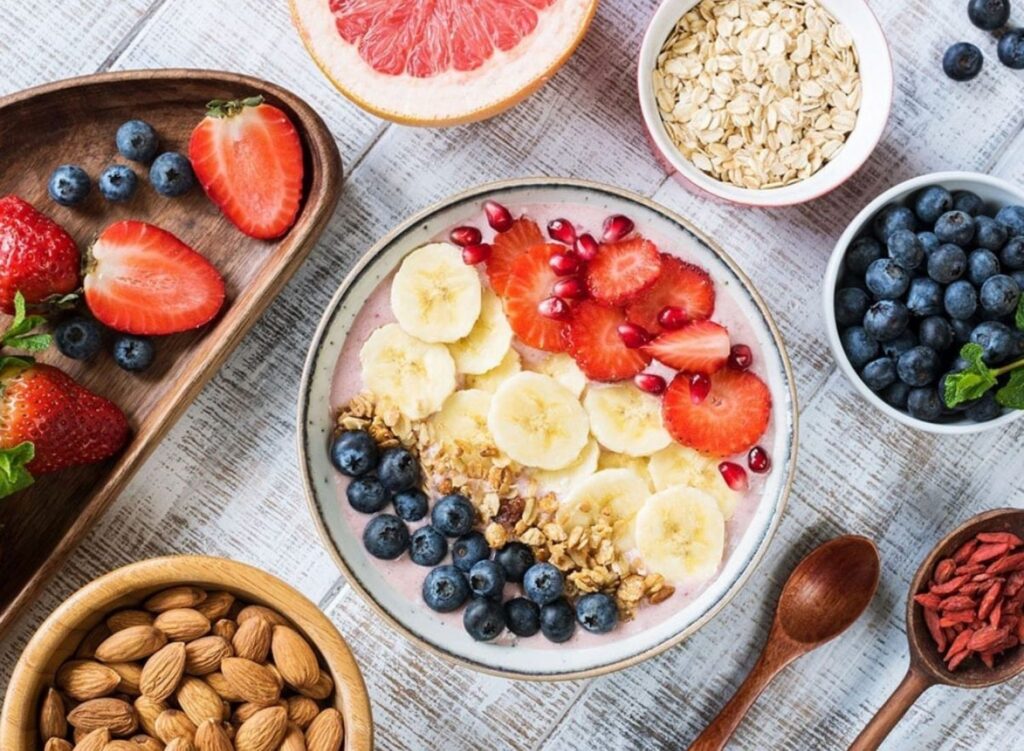You may have learned about a FODMAP diet from a friend or found information about it on the internet. When people talk about a “FODMAP diet,” they’re generally referring to a diet that’s low in FODMAPs, a type of sugar that can cause intestinal distress. This diet is intended to assist people with irritable bowel syndrome (IBS) and/or small intestinal bacterial overgrowth (SIBO) in determining which foods are troublesome and which foods help them feel better.
What Is FODMAP?

Fermentable Oligo-Di-Monosaccharides and Polyols (FODMAP) is an acronym for fermentable oligo-di-monosaccharides and polyols. FODMAPS are sugar and fiber-rich carbohydrates present in the following foods.
What Is A Low-FODMAP Diet?

Many popular items that contain such foods are excluded from a low-FODMAP diet. This diet’s goal is to heal the gut, especially if you have gastrointestinal (GI) problems like IBS. This diet may be used as part of the treatment for gastrointestinal (GI) disorders.
This diet can be hard to stick to, so talk to your doctor or a dietitian to ensure you’re on track and getting enough nutrients.
Foods high in FODMAPS are poorly absorbed when they move through the intestines. These foods are fermented in the intestines, resulting in many gas and other by-products, which may cause intestinal distension. It, in turn, can cause gastrointestinal problems.
Tips For Success
- Look for high-FODMAP foods on food labels and ingredient lists.
- If you experience constipation, include low-FODMAP foods high in fiber (such as oatmeal) and drink plenty of water.
- Whether you’re starting a low-FODMAP diet or reintroducing FODMAP foods, keep a chart to monitor the symptoms.
- To save money and ensure the best quality, choose low-FODMAP fruits, vegetables, and meats in season.
- Do some preliminary research on low-FODMAP foods. To help speed the selection process when you get to the supermarket, look up pictures of low-FODMAP food items on the internet.
- If you can’t find what you’re looking for in your local grocery store, try vitacost.com, nuts.com, penzeys.com, or BobsRedMill.com.
Benefits Of A Low-FODMAP Diet

Many people with IBS claim that following a low-FODMAP diet benefits them.
- Experience fewer digestive symptoms, such as gas, bloating, diarrhea, and constipation.
- Take care of your IBS symptoms without resorting to medication.
- Enhance the overall quality of life.
How Does A FODMAP Diet Work?

It’s important to remember that low-FODMAP diets are restrictive and can only be used for a short time.
Phases Of A Low-FODMAP Diet
A low-FODMAP diet involves three phases:
Elimination: In this process, an individual removes all high FODMAPs from their diet for 3–8 weeks. It must be depending on their response to the diet.
Reintroduction: After the elimination process is complete and a person’s symptoms have returned to baseline or improved substantially, they may begin reintroducing FODMAP foods one at a time, around every 3–7 days. It will assist a person in determining which foods trigger their symptoms.
Maintenance: During the maintenance process, you return to a normal diet as much as possible, limiting only the FODMAP foods that cause IBS symptoms. Some people can eventually be able to reintroduce all or most FODMAPs to their diet without experiencing symptoms.
FODMAP Food To Eat
| Vegetables | Alfalfa sprouts, Bean sprouts, Bell Pepper, Carrots, Green Beans, Cucumber, Lettuce, Tomato, Eggplant, Ginger |
| Fresh Fruits | Grapes, Honeydew melon, Banana, Blueberries, Grape fruit, Kiwi, Lemon, Lime, Oranges, Strawberries |
| Dairy | Dairy that is lactose-free and hard cheese. |
| Meat and seafood | Beef, Pork, Chicken, Fish, Eggs |
| Grain | Rice, Rice brain, Oats, Quinoa, Corn Flour, Gluten-free Bread, Pasta |
| Non-dairy milk | Almond milk, Rice milk, Coconut milk |
| Drinks | Tea and Coffee (use non-dairy milk or creamers), Fruit juice not from concentrate, Water |
| Nuts and seeds | Almonds, Peanuts, Pumpkin seeds, Walnuts |
FODMAP Food To Avoid
| Vegetables | Onions, Garlic, Cabbage, Broccoli, Cauliflower, Snow peas, Beetroot, Mushrooms |
| Fruits | Peaches, Apricots, Plums, Mangoes, Apples, Pears, Watermelon, Cherries, Blackberries |
| Grain | Bread, Pasta, Pizza |
| Dairy | Dairy products that contain lactose (Milk, Soft Cheese, Yogurt, Ice Cream, Custard, Pudding, Cottage Cheese) |
| Nuts | Cashews, Pistachios |
| Sweeteners and Artificial sweeteners | High Honey, Mannitolructose corn syrup |
| Drinks | Alcohol, Sports Drinks, Coconut Water |







